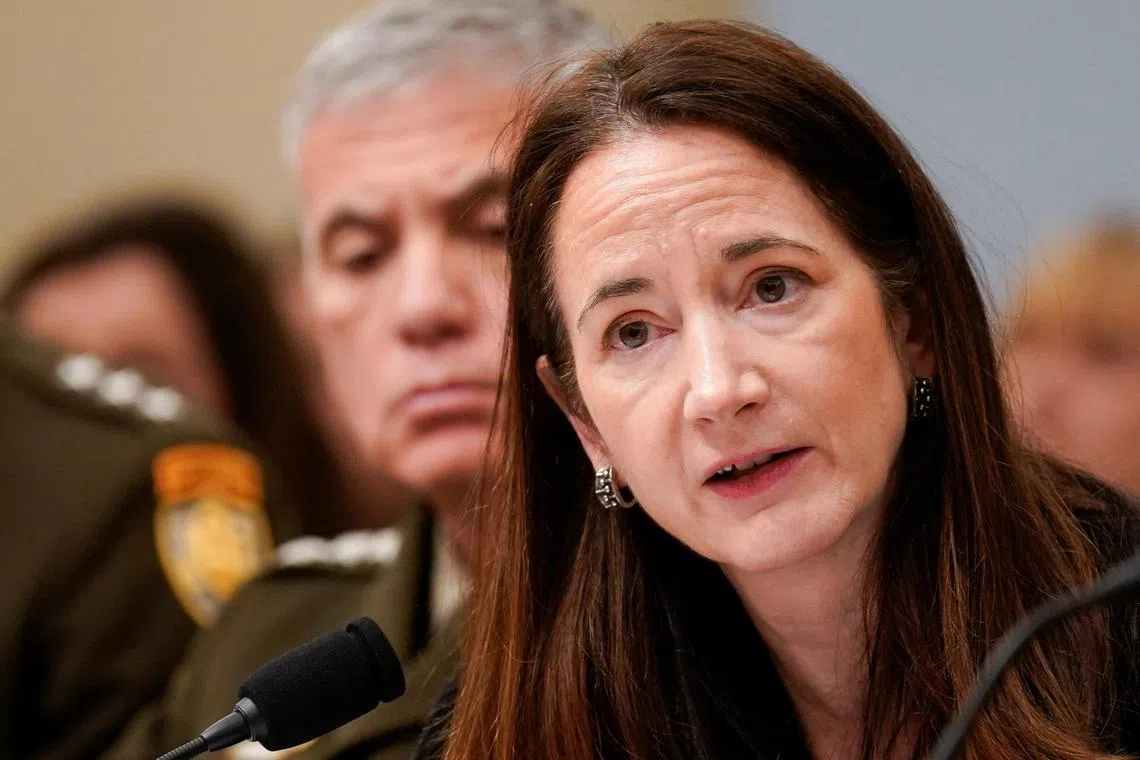China doesn’t want a war over Taiwan, US spy chief Avril Haines says
Sign up now: Get ST's newsletters delivered to your inbox

Director of national intelligence Avril Haines told the House Intelligence Committee about worldwide threats faced by the US.
PHOTO: REUTERS
Follow topic:
WASHINGTON – The US intelligence community has assessed that China does not want a military conflict over Taiwan, even as it is determined to bring the independently governed island under its control, officials told a House of Representatives hearing on Thursday.
“It’s not our assessment that China wants to go to war,” director of national intelligence Avril Haines told the House Intelligence Committee as part of an annual briefing on worldwide threats faced by the United States.
Central Intelligence Agency director William Burns testified at the same hearing that President Xi Jinping has been “sobered” by US and allied support for Ukraine in response to Russia’s invasion a year ago.
“That’s something that President Xi has to weigh as he comes out of zero-Covid, tries to restore Chinese economic growth, tries to engage with the rest of the global economy,” Mr Burns said.
At the same time, Mr Burns said he would “never underestimate the ambitions of the current Chinese leadership in that regard or their determination” to achieve reunification with Taiwan.
China regards Taiwan as a renegade province to be reunified with the mainland, by force if necessary. Taiwan rejects China’s sovereignty claims, saying that only the island’s 23 million people can decide their future.
As in a similar hearing before the Senate on Wednesday, Thursday’s hearing highlighted just how grave the US considers the threat posed by China to be.
Mr Xi’s government has “shrunk the gap” when it comes to technological competition with the US, National Security Agency director Paul Nakasone told lawmakers.
At the same time, the testimony from Mr Burns and Ms Haines offered a counterpoint to lawmakers – and some military officials – that China is primed to invade the island, possibly as early as 2027.
Asked whether the US should drop its longstanding position of “strategic ambiguity” on Taiwan, Ms Haines cited President Joe Biden’s repeated statements that the US would defend the island against a Chinese attack.
The US has no formal diplomatic ties with Taiwan, but it is the island’s most important international backer and arms supplier.
Mr Biden’s aides have repeatedly said his comments do not reflect a change in the US position, but “I think it is clear to the Chinese what our position is, based on the President’s comments”, Ms Haines told lawmakers.
If war does break out, Ms Haines warned that it would have “enormous economic implications”, especially if Taiwan’s semiconductor production is disrupted.
“The chips that come out of Taiwan are present in virtually every category of electronic device around the world,” she said.
China Foreign Ministry spokesman Mao Ning said on Friday at a regular press briefing in Beijing that “no individual shall ever underestimate the firm resolve, staunch will and strong capability of the Chinese government and people to defend our sovereignty and territorial integrity”.
The US should “stop upgrading substantive exchanges” with Taiwan, she added. BLOOMBERG

